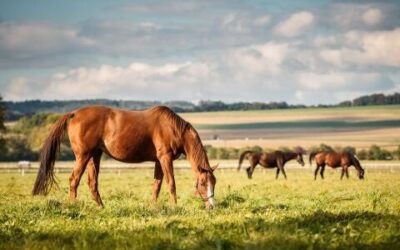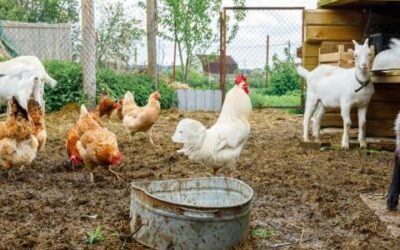Setting up an immunization schedule within the first three months of your horse’s life is critical to your horse and your herd. The diseases you will be protecting your horse against are devastating and often fatal, but they can easily be prevented through routine annual vaccinations. Establishing a vaccination plan is also an excellent first step in developing a relationship with your veterinarian so you’ll have a supportive partner throughout your horse’s life. Lucerne Farms talked to New England Medical and Surgical Center in Dover, New Hampshire about the basics of establishing a vaccination protocol.
Core & Optional Equine Immunization
The “core” equine vaccinations are those considered requirements for basic equine health care, and they remain fairly consistent for most horses across most geographical areas. General guidelines include annual vaccinations for Rabies, West Nile Virus, Eastern/Western Equine Encephalitis, and Tetanus. These vaccinations represent the diseases that every horse is at risk for, regardless of lifestyle.
Core vaccines are routinely administered as “3-way”, “4-way” or “5-way”, so called because they are administered as one injection, with single vaccines provided as boosters, depending on the immunization, at six or 12 months. Administering multiple injections in one shot helps to limit the number of injections your horse is subject to, though this approach can increase the chances of reaction, so talking with your vet about the best approach for your horse is recommended.
 A backyard horse that never leaves the farm and does not encounter outside horses will typically only need the five core vaccinations. However, there are many vaccinations available for other diseases that are not part of the “core” vaccinations. These are given on an individual basis depending on the horse’s level of risk for contracting these diseases. Such “optional” vaccinations are often recommended based on geography, herd population, and the horse’s travel habits.
A backyard horse that never leaves the farm and does not encounter outside horses will typically only need the five core vaccinations. However, there are many vaccinations available for other diseases that are not part of the “core” vaccinations. These are given on an individual basis depending on the horse’s level of risk for contracting these diseases. Such “optional” vaccinations are often recommended based on geography, herd population, and the horse’s travel habits.
“A performance horse that travels to shows every weekend will likely need additional vaccinations, such as Influenza/Rhinopneumonitis, or Strangles, in addition to the core vaccines,” said Kathy Samley, DVM at New England Medical and Surgical Center. She takes a close look at the horse’s lifestyle to assess which vaccinations a horse may need and balancing their level of risk. Pregnant broodmares, for example, need a specific set of vaccinations throughout their pregnancy, and are typically given boosters of their core vaccinations at the end of their pregnancy, in order to help pass immunity to the neonatal foal through their colostrum.
While many of these long-standing vaccinations will may sound familiar if you are a horse or animal owner, if it’s been a while, it’s wise to learn about the latest recommendations – new vaccines are being developed all the time, Samley said, and there is always work being done on the currently available vaccines to improve them.
Vaccines & Side Effects
It’s normal to be concerned about how immunizations will affect your horse. While side effects should not discourage owners from vaccinating, when foreign bodies are introduced to a healthy horse, either through injection or intranasally, there are always risks. Side effects range from mild to more severe, and individual horses can react differently. Mild reactions include swelling at the site of injection and muscle soreness. In some cases, the horse may experience fever, go off feed, or become slightly depressed up to 48 hours after vaccination. More severe reactions can include anaphylactic shock or an abscess at the injection site. It’s important for owners to be attentive to reactions in the days that follow immunization and to report concerns to their veterinarian.
Samley said they occasionally see side effects as a result of vaccinations, the most common being low-grade fever, muscle soreness and lethargy. “If a horse has a history of vaccine reactions, we work with the owners to develop a vaccination plan that will help minimize these risks,” she said. “Thankfully, these side effects are rare, and are not nearly as concerning as the risk of developing a preventable and fatal disease such as tetanus or rabies.”
Next: Equine Immunizations Part II: Keeping Your Horse Safe from West Nile, Rabies & Flu




